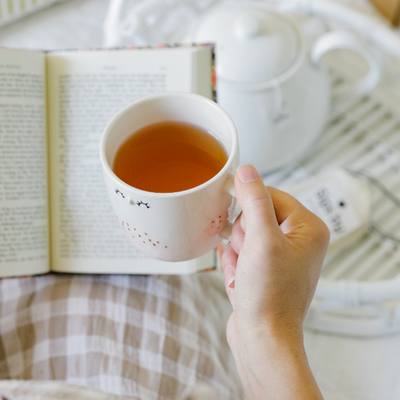
Do you have a busy schedule? We’ve been there. Sometimes it just feels like you don’t have enough time in the day to knock out your to-do list and take care of yourself.
One way to help close the gap between productivity and self-care is to start investing in things that work behind the scenes to help you feel better. Our first recommendation? Build a collection of oolong tea.
Making the simple choice to drink oolong tea can unleash a whole world of health benefits. Here are just some of the ways that oolong tea helps your body stay in tip-top shape.
Sips by is the #1 rated tea club. Made by tea lovers for tea lovers, our personalized tea discovery box matches you with 4 new premium teas chosen from thousands of top-rated teas based on your unique taste preferences. Learn more about our tea of the month club.
What Is Oolong Tea?
Oolong tea originated in China during the Song Dynasty, and its cultivation continued to evolve through the Ming Dynasty. Although oolong tea is cultivated in many countries today, it originated in the Fujian Province, Anxi area, Guangdong Province, and Taiwan.
Like all teas, oolong tea is made from the dried leaves of the Camellia sinensis plant. You could say oolong tea sits in between black tea and green tea if you really want to make a comparison.
When green tea is made, the tea leaves are dried quickly after picking. This means that they aren’t as heavily oxidized, which contributes to the lighter color and lower caffeine content.
Meanwhile, black tea leaves are left to oxidize until they turn black – hence the name. This oxidation creates a deep flavor, dark color, and higher caffeine content.
Of course, tons of factors go into taste and caffeine content other than just oxidation. Processing is the biggest determinant of tea type, but the type of Camellia sinensis plant, growing conditions, and harvest season all play a role.
Oolong tea is partially oxidized, although it is not allowed to turn black like black tea leaves. This makes oolong tea stronger than most green teas, but lighter than many black teas.
-
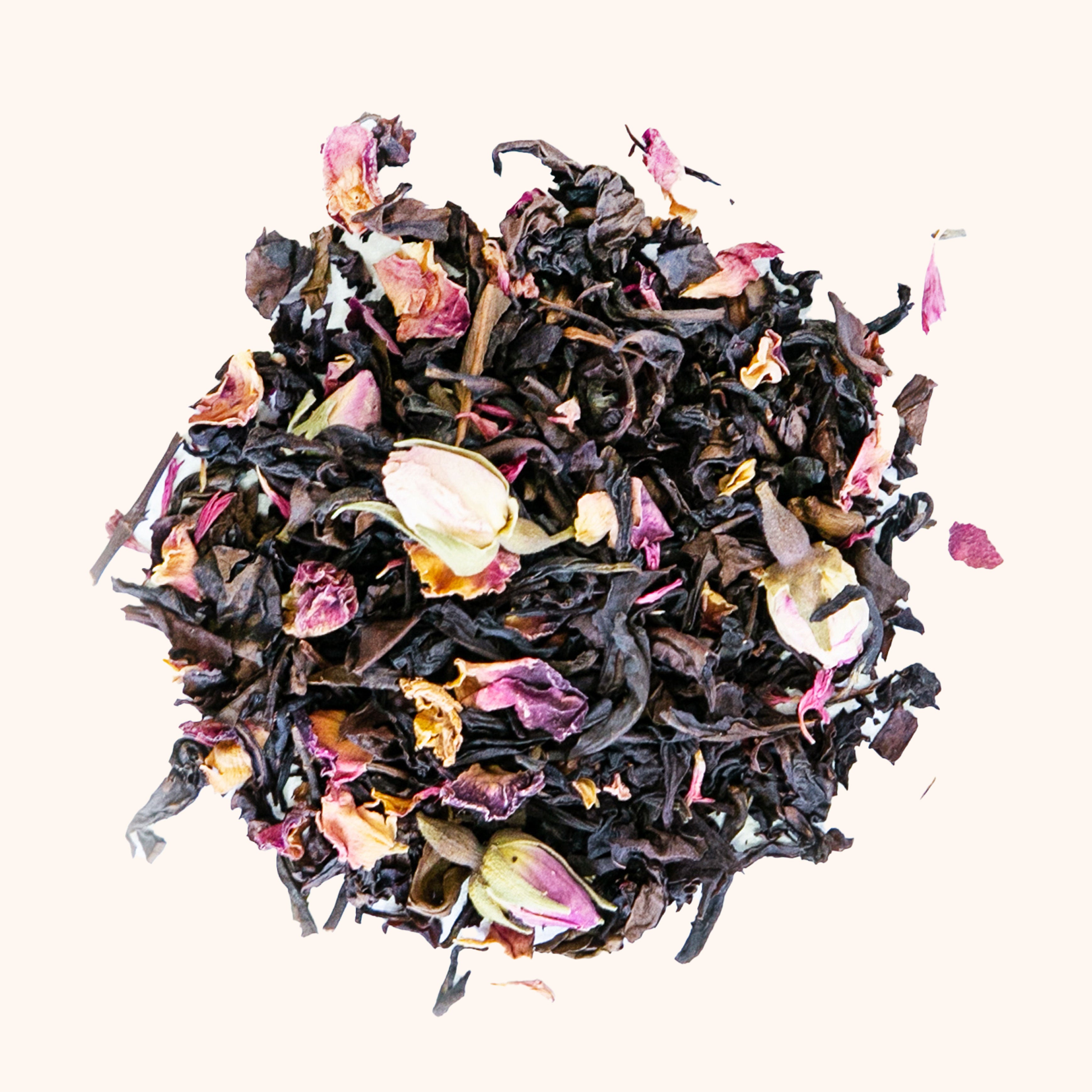 Sold out
Sold out -
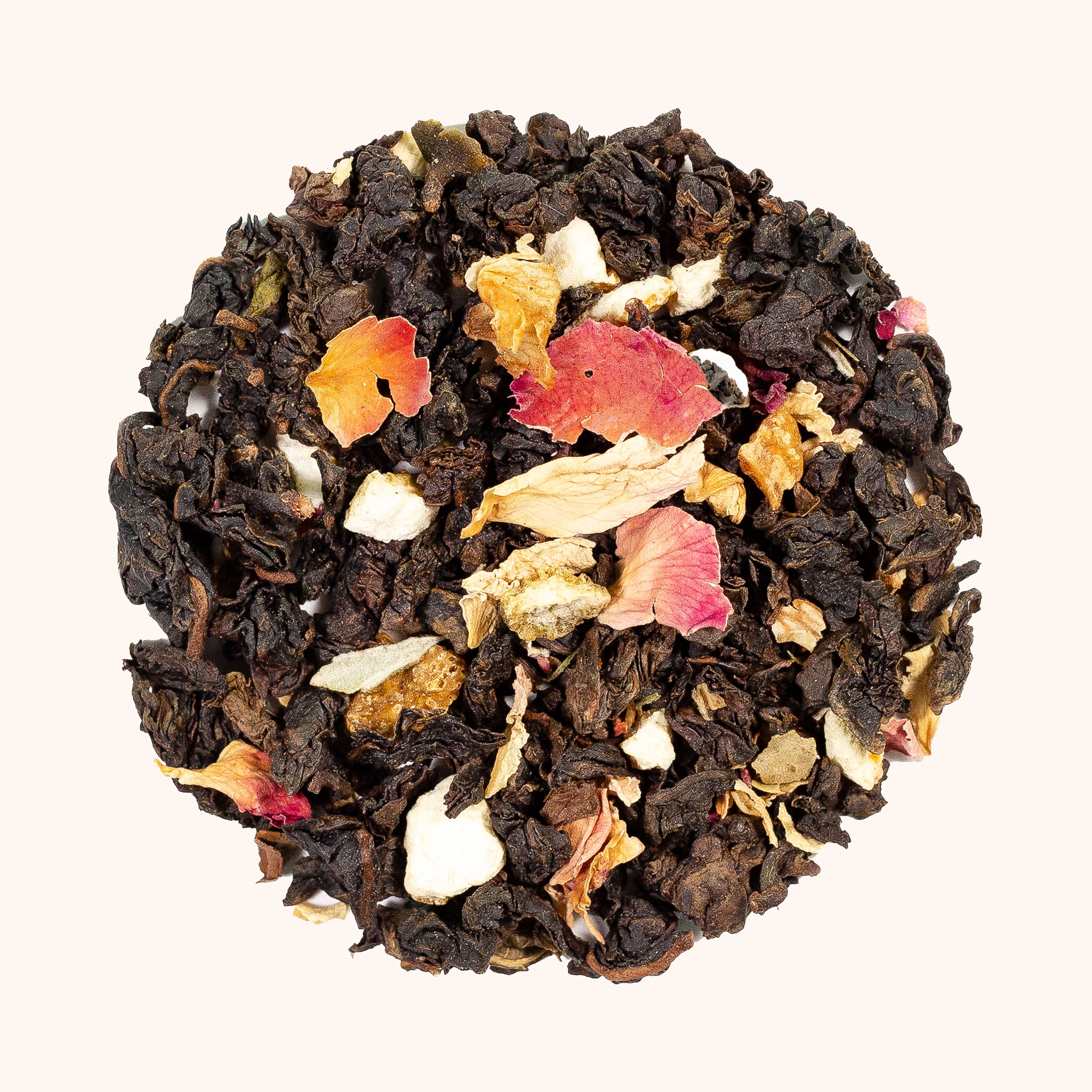 Sold out
Sold out -
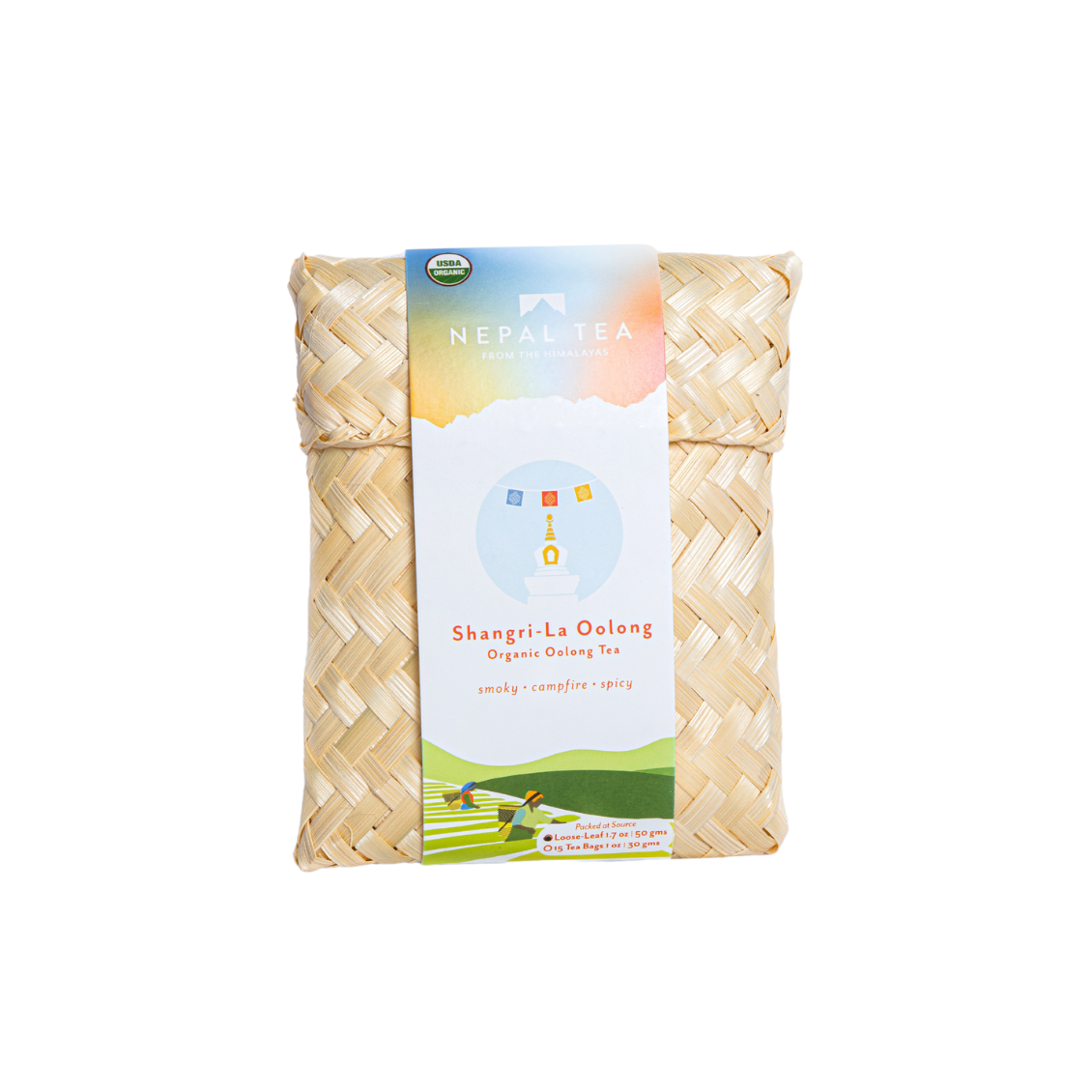 Sold out
Sold out
Types of Oolong Tea
There are five types of oolong tea that change in flavor and color depending on region and processing.
The first type of oolong tea is baozhong oolong or “green oolong.” This type is lightly oxidized, so its flavor is similar to that of green tea. Although tea leaves are normally rolled, green oolong leaves are twisted.
The second type of oolong tea is jade oolong. This oolong is still lightly oxidized, although it is darker than green oolong. Jade oolong tastes a bit floral, which is wonderful for a light tea drinker.
The third type of oolong is amber oolong. This type uses a medium level of oxidation to deepen the color, flavor, and caffeine content. Amber oolong is the traditional variety used along the Chinese countryside.
The fourth type is champagne oolong. Champagne oolong has the highest oxidation and boasts a rich flavor that is laced with sweetness. These oolong tea leaves are typically dark and colored.
Finally, the fifth type is aged oolong. Aged oolong is kept for several years and baked every so often so as to deepen its flavor. This type of oolong is also low in caffeine.
Because there’s so much variation in oolong, there’s a type for almost everyone. What can we say? Oolong aims to please.
-
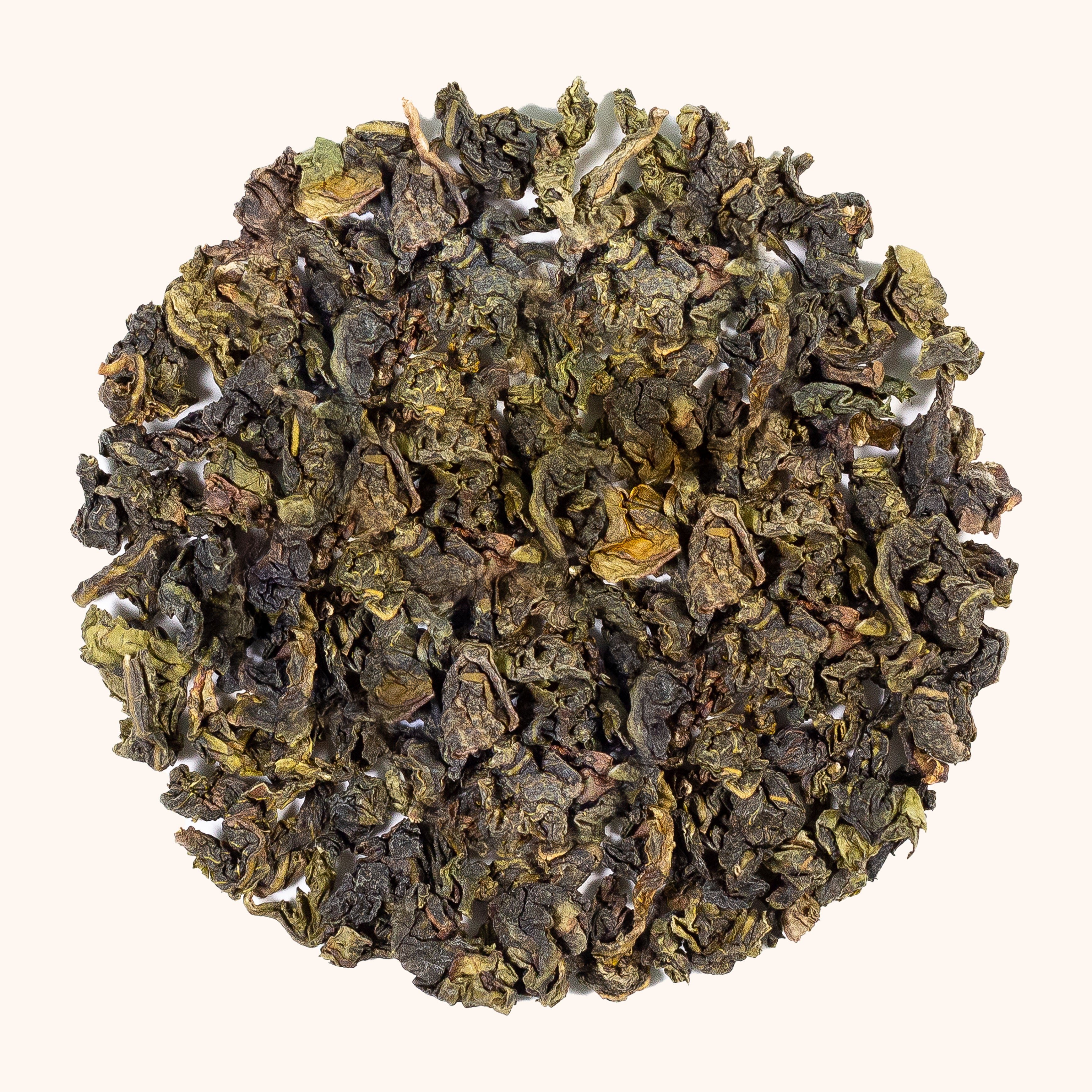 Sold out
Sold out -
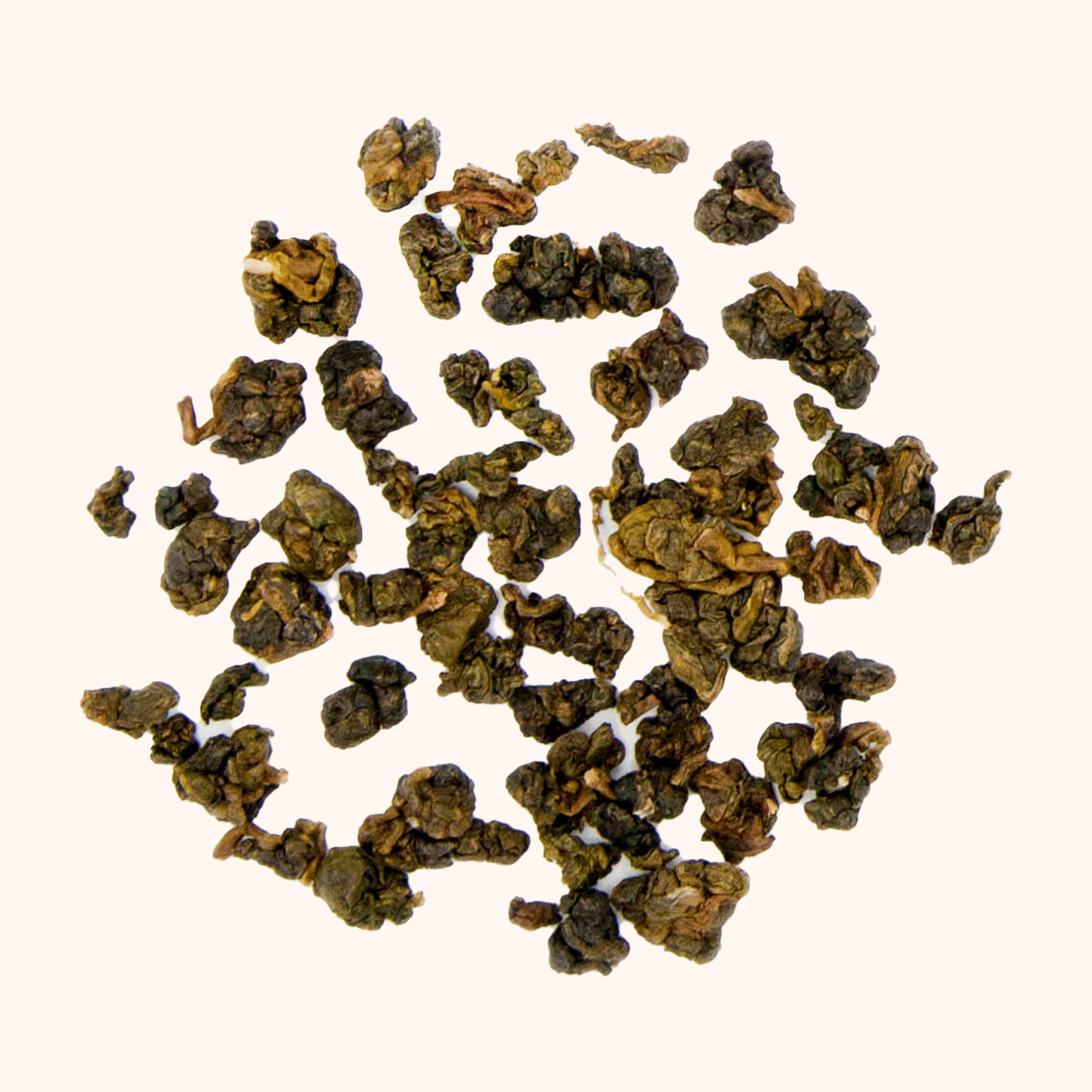 Sold out
Sold out -
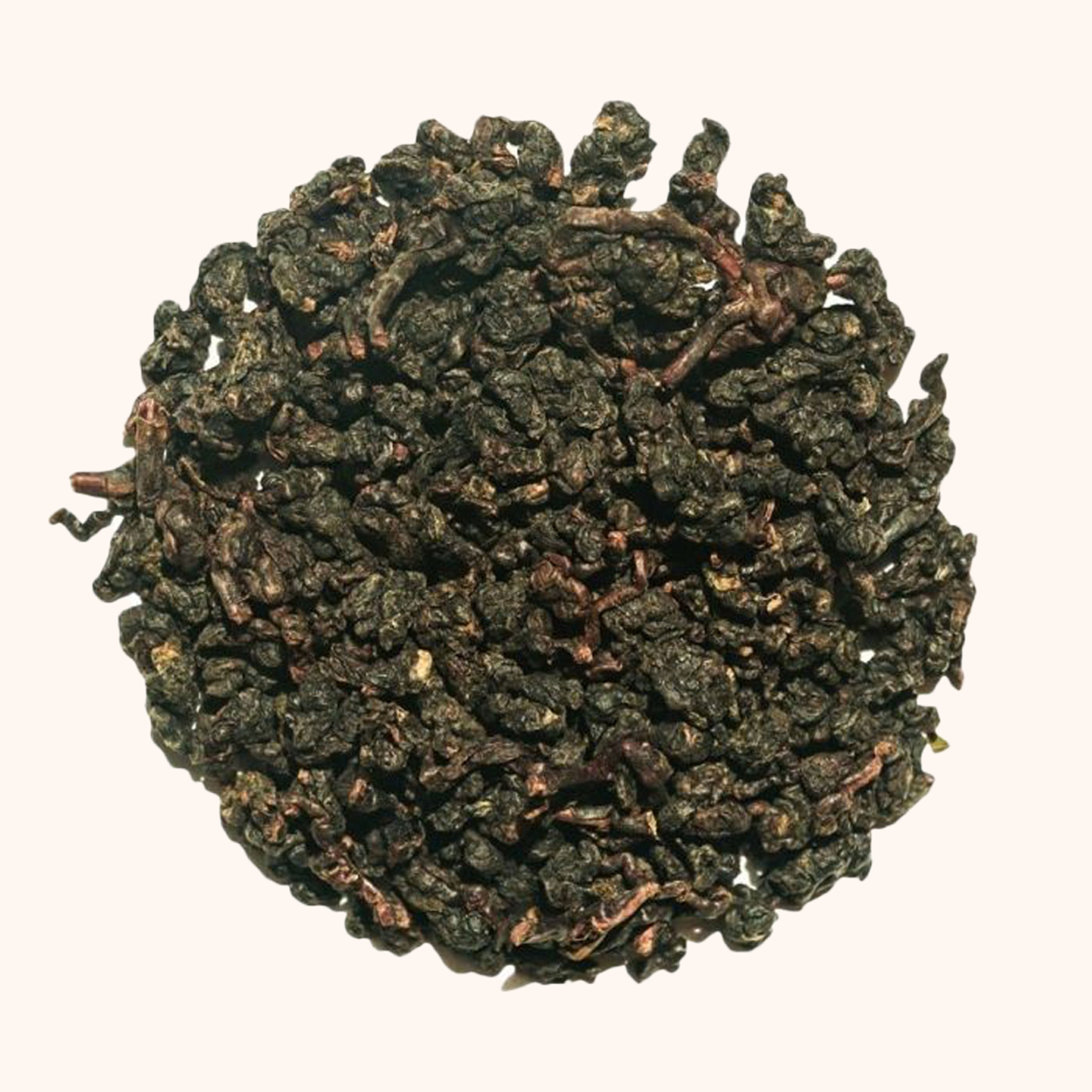 Sold out
Sold out
8 Health Benefits of Oolong Tea
Aside from being a deeply complex tea, oolong also boasts an incredible array of health benefits. Here are some of the ways that oolong can work with your body.
Full of Antioxidants
Because of how it is partially oxidized, oolong tea has a wide variety of antioxidants. These antioxidants include power-packed polyphenols like theaflavins and catechins, which are also related to flavonoids. But why do antioxidants matter?
Antioxidants help round up and neutralize free radicals, which are unstable atoms that have a tendency to cause long-term damage if not stabilized. Antioxidants help stabilize the free radicals so that they can’t cause as much damage.
Antioxidants directly contribute a lot of other health benefits, including some of the others on our list. These little compounds carry a lot of weight!
Boosts Metabolism
Oolong tea may help promote a healthy metabolism by supporting healthy blood sugar levels. This is mostly due to those helpful antioxidants, which can actually metabolize blood glucose and increase fat oxidation to help maintain healthy levels and aid weight loss and body fat loss.
Another way that oolong helps maintain a healthy metabolism is energy expenditure. The amount of energy that your body uses to metabolize a cup of oolong tea kick starts your metabolism, keeping your overall energy use at a healthy level.
Supports Immune System
The antioxidant flavonoids in oolong tea help your body neutralize some bad bacteria in order to support your immune system. Oolong can also encourage good bacteria, especially in your gut. The result is increased overall well-being and a better-feeling you.
Although oolong supports the immune system, it’s no replacement for a regularly scheduled doctor’s visit. It also doesn’t replace immune-balancing vitamins and supplements. Still, when used alongside regular appointments and supplements, oolong helps lighten the load.
Contributes to Healthy Skin
In some cases, oolong tea can actually encourage healthy skin in those who have skin conditions that cause dryness or irritation. This is because of oolong’s free radical-fighting antioxidants.
Free radicals can greatly impact the skin and cause dryness, irritation, and even common signs of aging like wrinkles, fine lines, and dark spots. Oolong’s antioxidants help by neutralizing some of those free radicals and reducing your risk of skin irritation.
Protects Against Long-Term Illness
Scientists believe that the polyphenols in oolong tea may help provide a lower risk of long-term illness. These polyphenols can reinforce your body’s normal functions so that it’s harder for the beginnings of long-term illnesses to take root.
Most of this research has been conducted on green tea, which showed promising results. Since oolong is similar to green tea, it’s likely that regular consumption of oolong tea can lead to those same results. However, scientists need more research before they can say for sure.
Oolong tea is no replacement for a detailed health regimen and regular check-ups. However, a delicious cuppa sure can’t hurt. We recommend Cultivate Taste Organic High Mountain Jade Oolong, which is a loose leaf tea that is similar to green tea in its oxidation. Plus, it’s absolutely delicious!
-
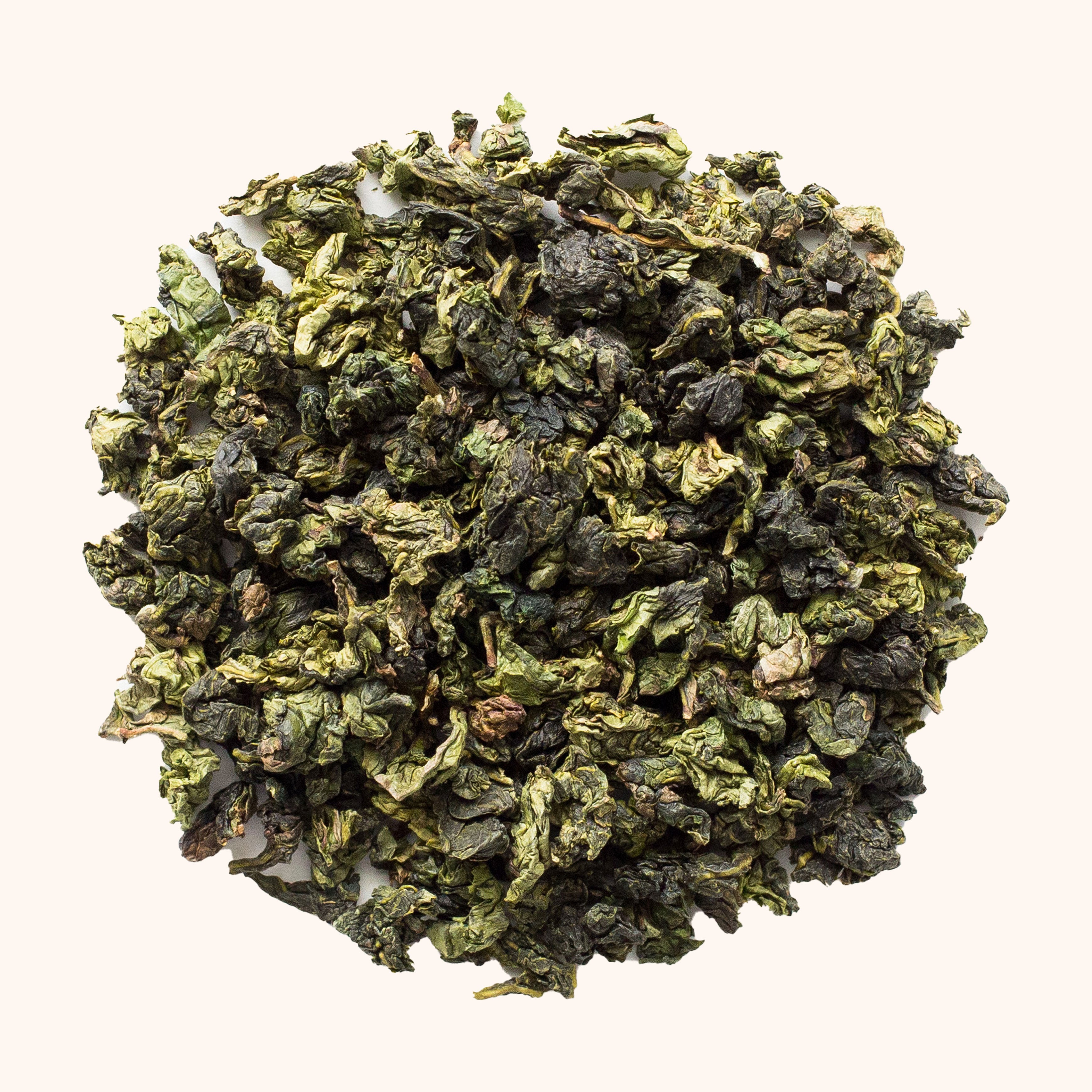 Sold out
Sold out -
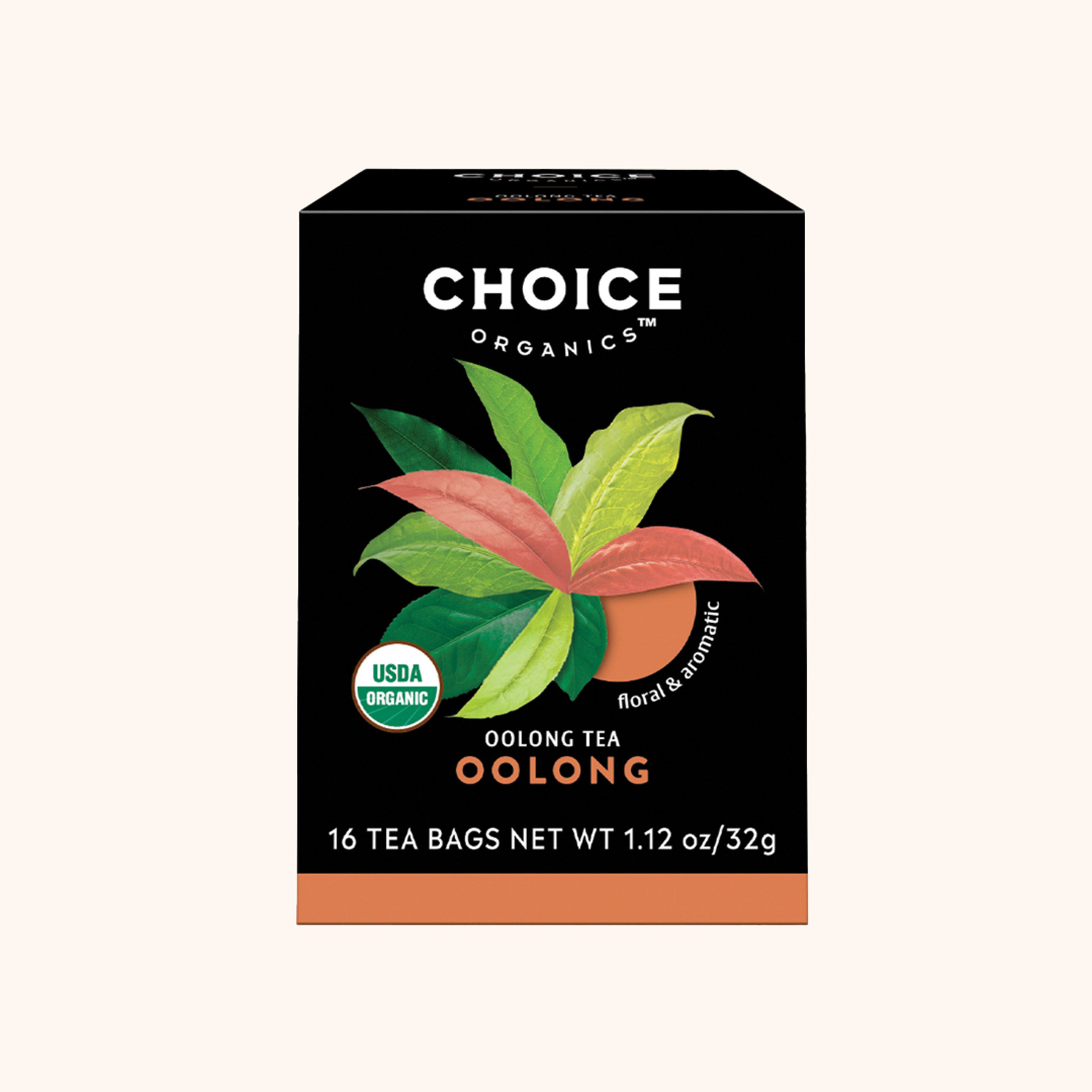 Sold out
Sold out
Supports a Healthy Heart
Oolong tea employs a three-pronged approach to support heart health. While some of its benefits are general to all tea antioxidants, oolong tea has a few unique tricks up its sleeve.
First, oolong tea can help maintain healthy blood pressure levels. If you’re prone to stress, then you’ve likely experienced unregulated blood pressure — it’s no fun. Next time you’re stressed, try a cup of oolong tea and some deep breathing. You’ll thank us later!
Second, oolong tea promotes regulated cholesterol levels. Dysregulated cholesterol can be a huge contributor to long-term illness. That’s why it’s so important to regulate! Who knew it could be as easy as drinking tea?
Third, oolong tea helps lower your risk of heart disease. The antioxidants in oolong target triglycerides, which is a type of fat that circulates in your blood and can cause serious cardiovascular diseases if left alone. While oolong does not replace a doctor’s visit, it can encourage your body’s enzymes to break down those triglycerides.
Boosts Energy
Oolong tea contains caffeine, which can boost your energy and help you stay awake. The caffeine content in oolong tea varies since the oxidation process is inconsistent between varieties. However, it should lie somewhere between 28 mg and 47 mg.
That’s not nearly as much caffeine as a cup of coffee. However, oolong tea has a secret ingredient to help it compete. Alongside caffeine, oolong contains an amino acid called L-theanine. This amino acid can promote relaxation and focus alongside caffeine’s stimulation.
Because of L-theanine and its antioxidant pal catechins, the caffeine in tea is absorbed more slowly by our bodies, resulting in a more sustainable boost of energy.
Think of it as coffee without the caffeine jitters and crash!
Supports Healthy Brain Function
L-theanine does more than just balance caffeine; it can also help promote a healthy brain. This amino acid helps you feel more alert and helps focus your attention, both of which are vital to stave off age-related mental decline.
Although you probably won’t need to truly worry about age-related cognitive issues for a while, it always helps to give your body a head start. Even just drinking cups of oolong tea and exposing your brain to different stimulation can provide a strong foundation for your mental stamina.
Makes for Healthy Bones
The antioxidants in oolong tea can help strengthen your overall bone mineral density. A higher bone density can lower your risk of fractures or other bone injuries, although science has not proven a direct link between oolong tea and a lower risk of fractures.
Along with healthier bones, oolong can also contribute to your dental health. Drinking oolong tea can decrease your plaque and slow down tooth decay by promoting healthy oral bacteria. In fact, when stacked up against other types of tea, oolong was by far the best at maintaining a healthy mouth.
Is Oolong Tea Safe to Drink?
The short answer is yes. Not only is oolong tea high in antioxidants, but it also contains healthy nutrients like calcium, magnesium, and potassium. In fact, you might also drink oolong for its manganese, niacin, and sodium content.
These nutrients are just as vital for a healthy and balanced body as a regular exercise regimen. You might not think that drinking a cup of tea is as important as your daily neighborhood walk, but you need both to be healthy.
Oolong tea does have a few side effects. It is a caffeinated tea, which means you need to be mindful of how much you drink. You definitely don’t want to accidentally overload yourself with caffeine.
Caffeine overload can look like anxiety, headaches, and trouble sleeping — all things you probably don’t want. To avoid caffeine overload with oolong tea, try to stay between six and ten cups of tea per day, depending on your caffeine tolerance.
You can also overload on antioxidants. Too many antioxidants in your system can actually start to have the opposite effect, and can even lead to long-term health issues. However, getting an overload of antioxidants by just drinking tea is unlikely, unless you’re also taking supplements.
How to Enjoy Oolong Tea
There’s no wrong way to love this little wonder, but you’ll probably want to start the process by picking your oolong tea. With so many varieties of oolong, this might be the longest part!
You can start off by checking out our oolong selection. We have oolong flavored with raspberry, apple, chocolate mint, maple, rose, and more. We also have light oolong, roasted oolong, and everything in between. We even have an oolong earl grey!
Once you choose your tea, you’ll need to boil some water and let your tea bags steep according to the instructions on the box. Once the tea is ready, you have a few options.
You can drink it hot and black straight from the teapot, or you can stir in some cream and sweetener. You can also put your tea in the refrigerator and let it cool off. Once it’s cool, you can add some ice to make oolong iced tea.
Finally, find something you enjoy. Pick up a good book, look out your window, go on a scenic drive, or call up a friend. No tea is complete without something (or someone) you love.
-
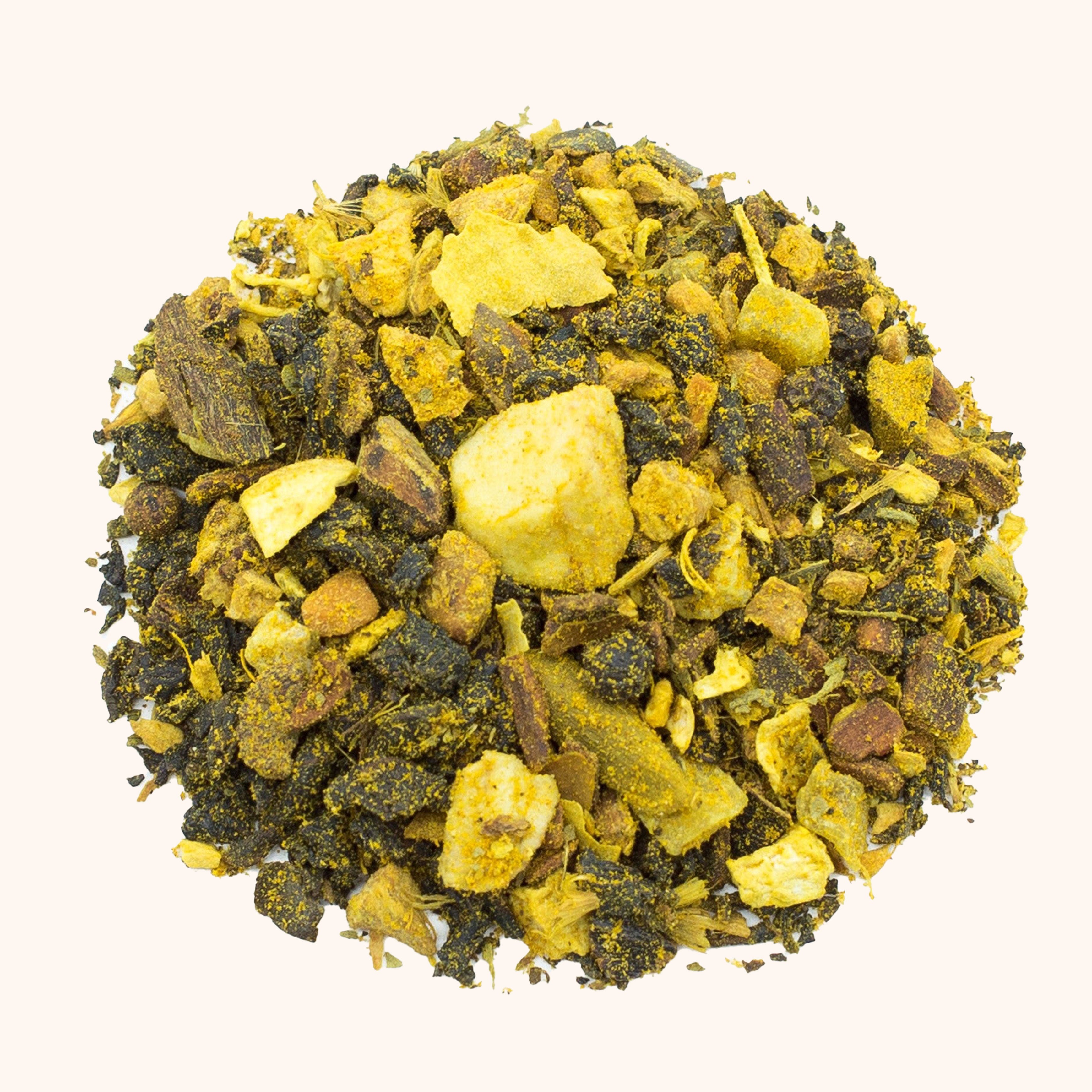 Sold out
Sold out
The Bottom Line
Oolong tea is richly steeped in Chinese history and is still produced in China to this day. As a happy medium between light green tea and toasty black tea, oolong tea has something for everyone.
Although there are many varieties of oolong, all of them share the same benefits. Oolong can boost your metabolism, contribute to heart health, spark your energy, and even support your skeleton. Who knew that one little cup of tea could pack such a punch?
For more facts about tea and tea recipes, check out our blog and follow us on social media.
Interested in trying these teas and others? Subscribers receive 4 teas chosen just for them in every box. Learn more about our tea subscription box or explore the loose leaf tea shop.
About Sips by: We’re a female-founded and led startup that makes discovering tea fun, personalized, and affordable. The Sips by Box is the only multi-brand, personalized tea subscription box. Each month, we match tea drinkers across the U.S. with delicious teas from over 150 global tea brands that we’re sure they’ll love. Based out of Austin, Texas, we are adept at savoring a hot mug even when it’s seasonally inappropriate.
* These statements have not been evaluated by the Food and Drug Administration. These products are not intended to diagnose, treat, cure, or prevent any disease.
Sources:
Chemistry and Health Beneficial Effects of Oolong Tea and Theasinensins | ScienceDirect
Health Benefits of Oolong Tea | WebMD
Caffeine Content for Coffee, Tea, Soda and More | Mayo Clinic











